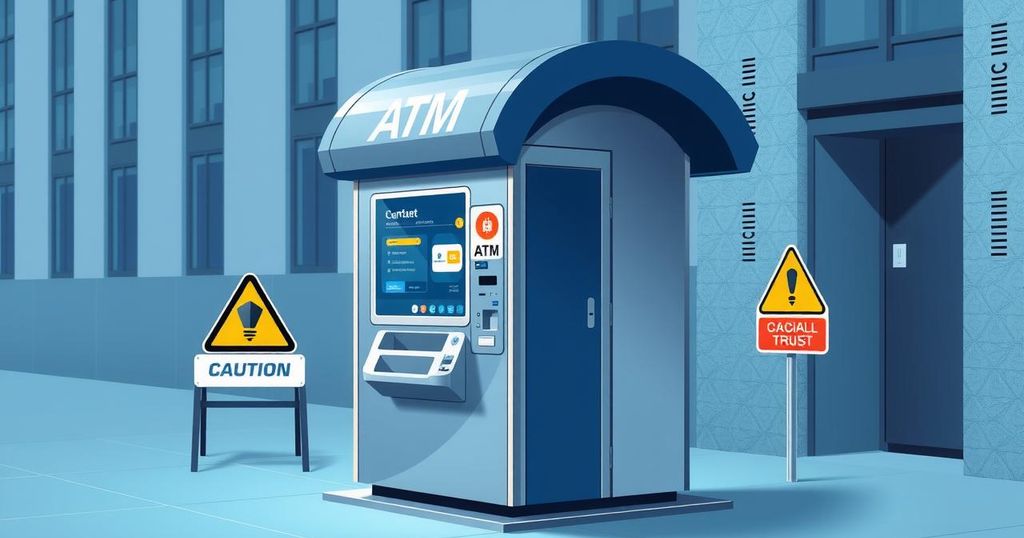Iowa Legislation Targets Cryptocurrency ATM Fraud with New Bill
Senate File 449 seeks to regulate cryptocurrency ATMs in Iowa, limiting daily transactions to $1,000. The bill aims to curb fraud, which has seen significant growth. Operators would face penalties for violations. Ongoing lawsuits against major crypto ATM operators raise concerns about consumer deception.
A new bill, Senate File 449, is making its way through the Iowa Legislature aimed at regulating cryptocurrency ATMs in the state. Passed by the Senate with a notable 45-2 vote in March, the bill seeks to minimise the potential for fraud associated with these digital financial asset kiosks. Critics, however, including Senators Rocky De Witt and Adrian Dickey, have voiced their opposition.
This legislation comes in light of alarming statistics regarding fraud linked to crypto ATMs. According to the Federal Trade Commission, losses from scams involving these machines surpassed $65 million in just the first half of 2024. Adam Gregg, at the helm of the Iowa Bankers Association, commented on the necessity for regulation, stating, “Bringing some regulation to what’s kind of a Wild West scenario right now is a good thing. We’re supportive of the bill.”
The proposed law sets a daily transaction limit of $1,000 for consumers and caps new customers’ transactions at $10,000 during their initial 30 days. Furthermore, it aims to rein in excessive transaction fees, restricting operators to charge only $5 or 15% of the transaction amount. Operators would also need to provide clear disclosures regarding transaction equivalency and any fees charged.
There are stringent requirements for operators to inform customers about the finality of transactions, warning them that fraud can often start with contact from strangers. This includes providing a receipt for every digital transaction and offering a list of all ATM locations to Iowa’s banking division.
Violations of the proposed legislation could lead to fines of up to $10,000, which is significant. The Iowa House’s commerce committee has already approved the bill, but a full vote is still pending.
Interestingly, Iowa isn’t alone in this regulatory push. States like Minnesota, California, and Vermont have already imposed daily limits on transactions involving cryptocurrency ATMs. A federal bill was also introduced in February to establish national transaction limits and ensure refunds for fraudulent dealings.
In an aggressive move, Iowa Attorney General Brenna Bird recently initiated lawsuits against Bitcoin Depot and CoinFlip, which are the two largest cryptocurrency ATM operators in Iowa. Allegations include profiting from consumers duped into depositing large sums into their machines under false pretenses. For instance, Bitcoin Depot takes an eye-watering 23% off each transaction, while CoinFlip retains 21%.
Support for the new legislation is growing, with notable lobbyists from various sectors backing the initiative, including AARP Iowa and local banking associations. On the contrary, representatives from the cryptocurrency sector, such as Bitcoin Depot and Coinflip, have opposed the bill. A spokesperson from the Iowa Credit Union League has yet to take a stance on the matter.




Post Comment